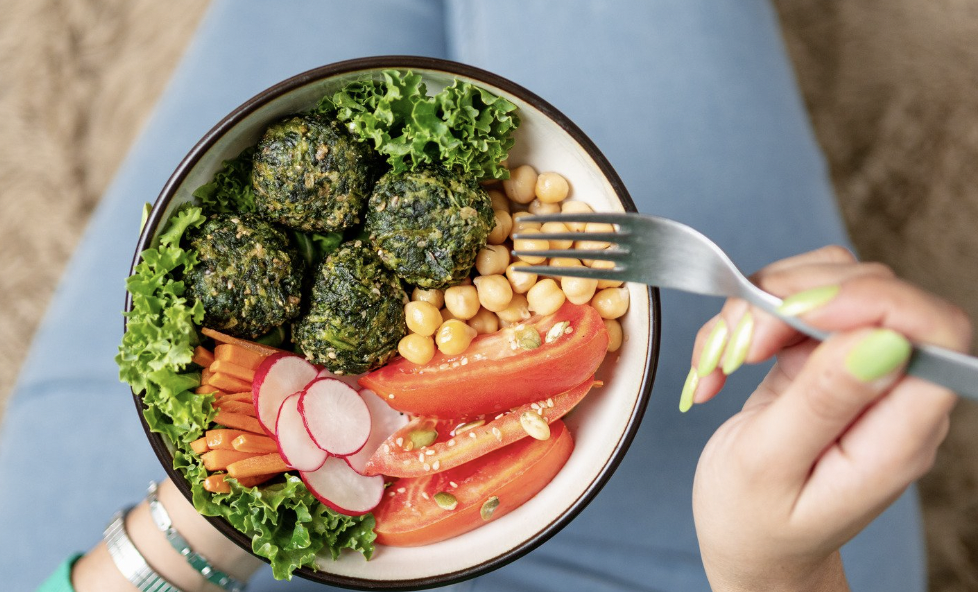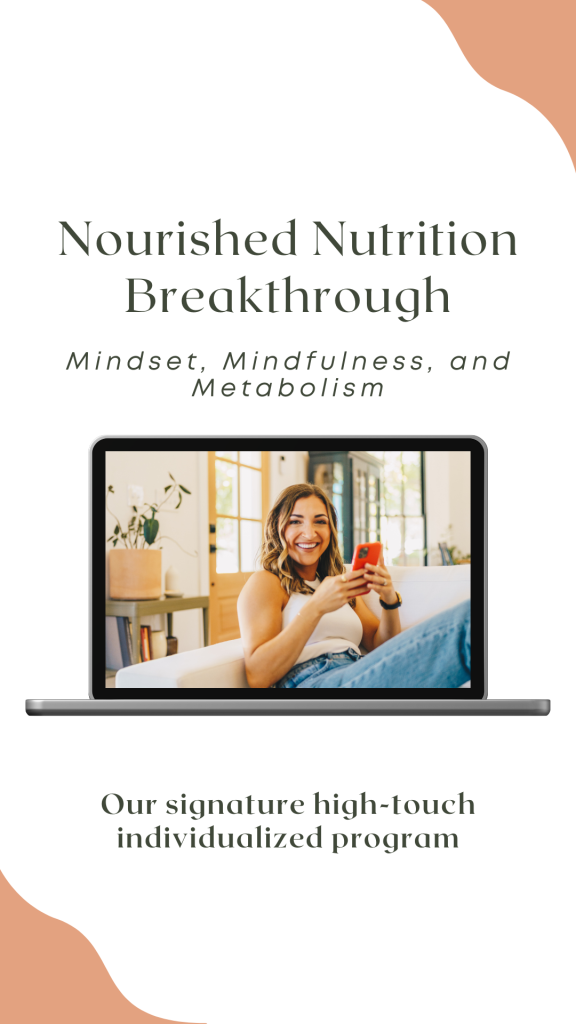I’ve seen all of the ads, have had questions from my clients, and have observed people promoting on social media for Netflix’s new documentary “You Are What You Eat: A Twin Experiment.”
So naturally, I had to watch it for myself! **Cue the couch popcorn**
What are my professional thoughts about this documentary, and would I recommend the plant-based diet to everyone?
Let’s dive into my thoughts as a registered dietitian and metabolism expert:
When I heard that Netflix had released another food documentary, you can imagine my eye roll. “Another one?!” I thought. Anytime Netflix launches a new series, it’s typically taken out of context and blown out of proportion by individuals who watched it.
If you haven’t watched it yet, “You Are What You Eat” is a new docuseries on Netflix that examines the Stanford Twin’s Study published in 2023. The show aims to explore the cardiometabolic effects of consuming a plant-based, vegan diet versus a plant-based + animal diet (omnivore) in twins over an 8-week period. Outcomes looked at included LDL cholesterol, glucose, insulin levels, and body composition.
By the end of episode 1, I realized how biased this series was already going to be – it was basically an ad for the vegan diet! There wasn’t any presented information from a non-biased source – limitation #1 of the series.
The language demonstrated in the series is also likely to induce food fear. There are comments like “cheese is biologically addictive,” even though research has shown that food addiction is NOT a real thing. Consumers can’t help but connect the word addiction to being similar to an addiction to something like alcohol or drugs. This is likely to make someone fearful of specific foods like cheese or meat, and exclude them from the diet without further knowledge or education on the matter. Putting negative connotations on specific foods is also likely to make you feel guilty for what you’re eating. With a movement towards intuitive and mindful eating in the nutrition world, this does the opposite – it spreads diet culture. It’s important to remember that no single food is going to be the cause of a disease, and therefore, food is not the enemy.
Now let’s dive into the research – what did the twin study even find? Is consuming more plant-based better for our health?

Bad cholesterol, or LDL cholesterol, had a greater reduction in the twins consuming the vegan diet compared to the omnivore-consuming twins. The vegan twins also had a greater reduction in HDL or the “good” cholesterol, and their triglycerides also increased. Neither of these two things are good, as we want HDL to be higher and triglycerides to be lower. Both groups lost weight; however, the vegan twins lost MORE weight. That being said, the vegan twins also lost more muscle mass, which isn’t the best thing! Ok conflicting results right?!
Another major red flag of this docuseries is that the study time AND the participant number were small. It was also mainly female. Therefore, it can be hard to extrapolate the results of this group to a larger audience or community.
If I were to redo this study, I would add more participants (although I get it, this would require a LOT of twins!), have more time, include more information or opinions / research on the omnivore diet, and have more males as part of the study.
Other factors that would need to be considered that can have an impact on overall health, inflammation, and metabolism (although are VERY hard to measure or keep as a control of the study,) would be stress levels, sleep, and physical activity.
In summary, my takeaway on Netflix’s “You Are What You Eat” is that it’s propaganda for the vegan diet where we only hear from vegan advocates. It’s very biased and the study has its flaws, and therefore consumers shouldn’t be hopping on the vegan diet bandwagon because of this study alone. For many people, for example, following a vegan diet is unrealistic, restrictive, unenjoyable, and can leave one being deficient in many nutrients if not done properly. I had one client do a vegan diet, for example, and was eating way too many carbs and ended up becoming a Type 2 diabetic because of it. Another woman came to me because she was doing a vegan diet and was deficient in vitamin B12. It’s important to make sure that you’re still meeting your nutritional needs no matter WHAT diet or dietary lifestyle you’re following.
This isn’t me being against the vegan diet, I’m always pro plant-based eating. And TBH, most Americans actually don’t eat enough plants nor do they eat enough fiber. I think that there needs to be many more factors considered outside of watching a docuseries alone such as: how will I meet my protein needs? Is this diet realistic for me? What am I hoping to achieve? What nutrients and foods do I need to focus on?
Instead of jumping on the bandwagon for another diet because it seems to be the healthiest to the naked eye, we need to do our research first.
If you’re looking to incorporate more plant-based eating habits in your routine with some proper education (instead of googling for advice,) I recommend lots of plant-based metabolism-boosting snacks in my snack guide “Snack Your Way to Metabolism Success.”
In this free guide, you’ll receive a full snacking list of my go-to recommendations as a nutritionist, the top 3 mistakes to avoid when it comes to snacking, and my favorite products like what protein bar to buy, what salty snacks are legit, and more.

n my 8+ years as a Registered Dietician Nutritionist & metabolism expert, I’ve helped 100s of women reach their nutrition goals through my proven 3-phased approach, the 3M method. By focusing on Mindset, Mindfulness, and Metabolism, you too can discover your most confident self and feel better than ever. This blog is a great place to start – whether you want to lose weight or learn where to start when it comes to meal planning.
If you’re interested in deeper 1:1 support, you can find the details of my high-touch, personalized coaching program (and how it can change your life forever!) here.
Are you tired of endless diets and gimmicks that promise quick results but fail to deliver? If you’re ready to embrace a sustainable approach to weight loss, one that doesn’t involve restrictive eating or relying on magic weight loss pills, then look no further.
Watch my program video here where you’ll discover the secrets to losing weight and fixing your metabolism for good while nourishing your body, health, and life.
This program is for you if you’re ready to say goodbye to the cycle of temporary fixes and hello to a lifetime of feeling and looking your absolute best. It’s time to take control of your health and well-being.

